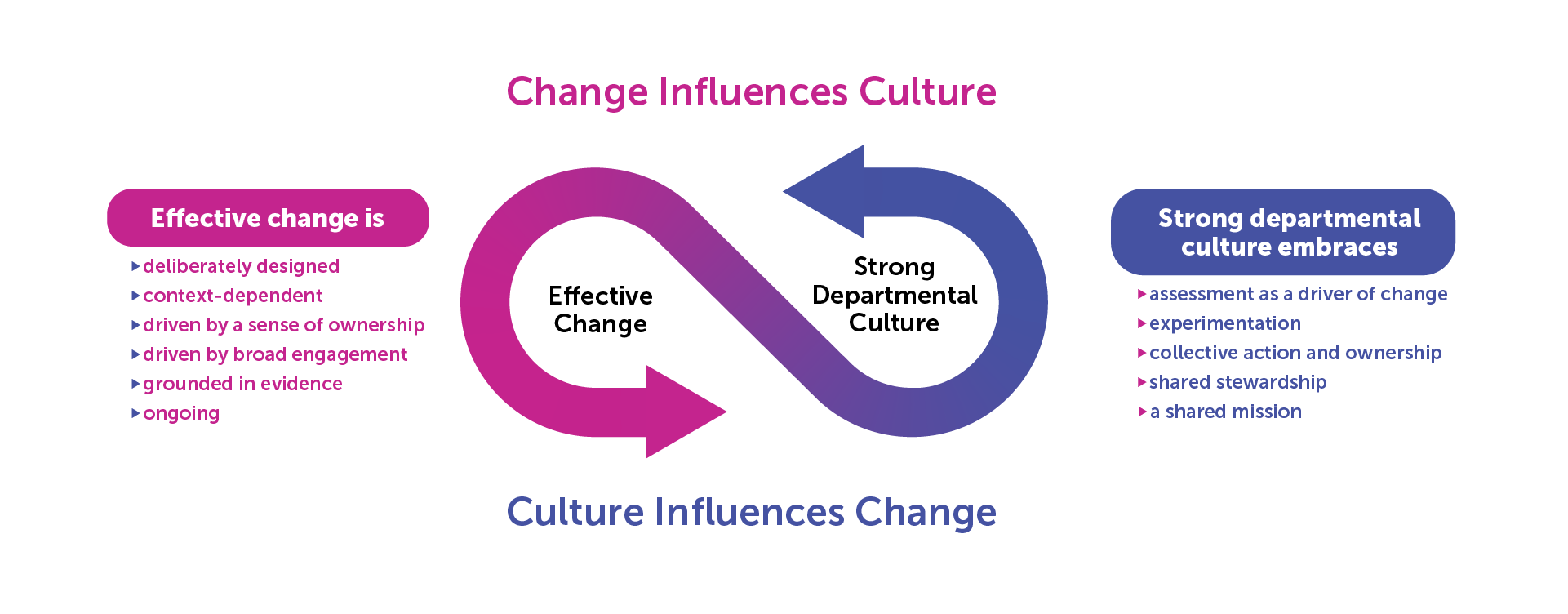EP3 Philosophy of Effective Departmental Change
The EP3 Philosophy
The EP3 philosophy for effective departmental change can be summed up in two words: be intentional. Successful physics departments:
- Take the time to build capacity for sustainable change;
- Engage in cyclic self-reflection on their processes and outcomes to guide decisions and actions;
- Embrace shared action and ownership and engage appropriate stakeholders;
- Use data and a clear sense of departmental mission and identity to formulate plans;
- Put plans into action; and,
- Reflect on the effectiveness of those actions to guide next steps.

The EP3 Principles
We believe that effective and sustainable change efforts in a department are:
- Deliberately designed, driven by a clear understanding of current priorities and the problem to be solved.
- Context-dependent, i.e., driven by local goals, challenges, and contexts, rather than external mandates.
- Driven by a sense of ownership by department members of the process and outcomes, including a sense of collective responsibility for the health of the department.
- Driven by broad engagement, so that a range of stakeholders are involved, actions involve a collaborative process (even if championed by an individual), and work is grounded in a commitment to equity and inclusion.
- Grounded in evidence, including an accurate understanding of evidence about the problem and decision-making based on appropriate interpretation of available information.
- Ongoing, in that change is not considered to be a one and done activity, but instead change processes include opportunities to revisit outcomes and decisions on a regular basis.
We believe that a departmental culture that supports—and grows out of—effective and sustainable change embraces:
- Assessment as a driver of change, through collecting data from a broad range of sources and using the results to inform decisions.
- Experimentation, by encouraging risk-taking and innovation and learning from failures and successes.
- Collective action and ownership, by distributing power over decision-making in meaningful and equitable ways, supporting many stakeholders to work in partnership, and engendering good communication and trust.
- Shared stewardship, by cultivating a sense that everyone shares responsibility for supporting the well-being of the department as a whole.
- A shared mission, including a shared understanding of what the department does and for whom, what it wants to achieve over time, and what it should do to achieve desired improvement.
For more information about how to make use of the principles underlying the EP3 Initiative, see the section on and the Cycle of Reflection & Action.
